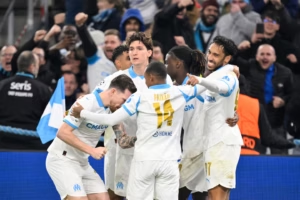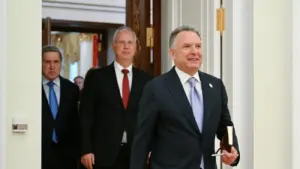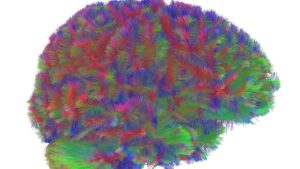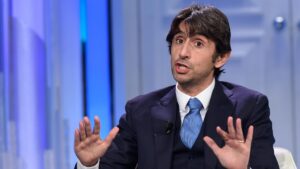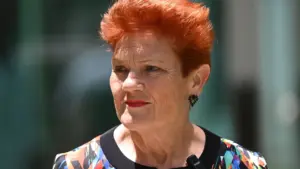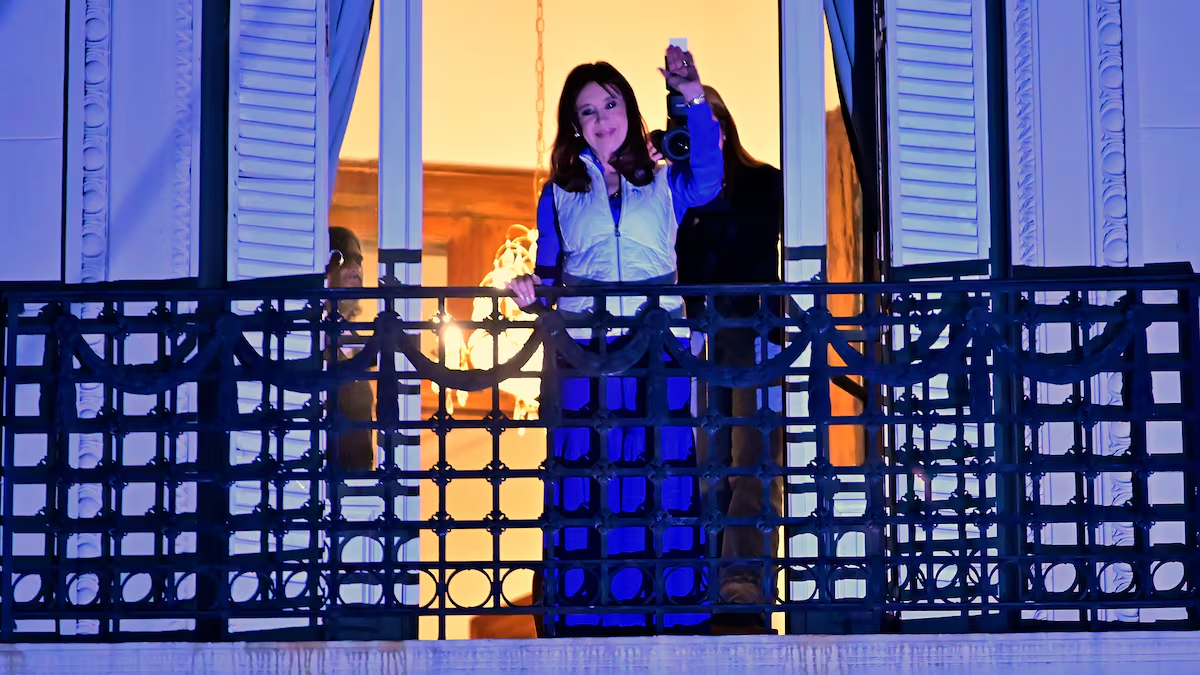
Oscar Centeno, driver of a high-ranking official of the governments of Néstor and Cristina Kirchner, meticulously recorded, over the course of ten years, every one of his trips with bags full of money, the result of alleged bribes that construction companies paid in exchange for contracts with the state. He detailed times, routes, names and even the weight of suitcases when it was impossible to calculate how many dollars were inside. The school notebooks in which he wrote down all those trips were the tip of the ball that led to the largest corruption court case in the history of Argentina: the so-called because of the notebooks. This Thursday began the oral trial against Kirchner as the alleged head of an illicit association for the collection of bribes, for which, among others, 19 former high-ranking Kirchner officials and 65 businessmen will also have to answer. The hearings are being held virtually, with defendants connected via zoom.
The former president, 72 years old, already has a 6-year prison sentence in another corruption case and has been detained at home since last June. He now faces possible sentences of 5 to 10 years. For his defense, “the sentence has already been written” because it is “persecution” and “revenge”, according to Gregorio Dalbón, Kirchner’s lawyer.
According to the indictment, the former president and her husband, the now deceased Néstor Kirchner, organized between 2003 and 2015 “a fundraising scheme to receive illicit money in order to illegally enrich themselves.” For this reason they established “agreements with important entrepreneurs of national and international companies, through which they obtained mutual benefits”. The accusation believes that “the managers and organizers of that parastatal structure traced a money collection circuit mainly focused on the concession and awarding of public works and/or services, and other related benefits”.
The cornerstones of the judicial file are the accusations against the entrepreneurs detailed by the driver Centeno in his notebooks, the maneuvers for the awarding of railway transport contracts and road corridors, and the cartelization of public works. In addition to Kirchner, the accusations concern former ministers, secretaries, undersecretaries and directors of state, as well as Centeno and another former driver, and executives of large construction, energy and transport companies.
The documented travels of Centeno – who was the driver of the undersecretary of the Federal Ministry of Planning Roberto Baratta – came to light in mid-2018 in an investigation by Diego Cabot in the newspaper The nationbut at the same time the journalist sent the photocopies he had of the notebooks to Justice. The detailed scheme of Kirchnerist corruption to which those notes alluded was confirmed in the following weeks by several businessmen mentioned in them. They agreed to testify as repentants in exchange for judicial benefits.
Most of the repentant businessmen said they had paid money to Kirchner officials, but denied that this was in exchange for obtaining public works contracts. According to their testimonies, the funds delivered were intended to finance the election campaigns of the ruling party and constituted forced contributions after being extorted. This is the version before justice of the repentant builder Angelo Calcaterra, cousin of former president Mauricio Macri, and also of Aldo Roggio, owner of one of Argentina’s largest business conglomerates, Grupo Roggio.
Other defendants, however, admitted to having systematically paid bribes. The former head of the Argentine Chamber of Construction and owner of the Esuco construction company, Carlos Wagner, handed over to Justice a list of companies that, through the Chamber, paid sums of black money to obtain infrastructure contracts. Furthermore, he stated that the illegal collection system began during the presidency of Néstor Kirchner (2003-2007) and continued during the two terms of his wife and successor, Cristina Kirchner (2007-2015).
Years later, some repentant entrepreneurs changed their story and requested the annulment of their accusation, claiming that they had confessed to having paid bribes under coercion by the judge Claudio Bonadio, who died in 2020. The builder Mario Rovella declared before a notary in 2023 that he had lied in his judicial declaration to avoid prison, since Bonadio dictated preventive detention to those who did not admit the alleged crimes attributed to them and, instead, they freed. to those who joined the “rewarded denunciation regime”.
Last September the accused entrepreneurs attempted one last maneuver to escape prosecution. They offered Justice sums of money up to 15 million dollars and even an apartment in Miami and a yacht to be removed from the trial. The public prosecutor Fabiana León listened to the requests and strongly opposed it: “There is no price that can be given to the institutional damage that has been caused.” Days later, the court ruled in the same way and refused full compensation for damages, holding that “corruption crimes affect supra-individual legal assets that cannot be compensated with money alone”.
During the trial it is assumed that the accused’s defense will question the authenticity of the notebooks, the central piece of evidence in the case. Kirchner’s lawyers have already unsuccessfully requested the annulment of the case because two expert reports have found numerous alterations in Centeno’s notes, erasingRhow and changes made by other people. Last week, the Supreme Court of Justice rejected more than 20 appeals filed by former officials and businessmen, and paved the way for the trial to begin.
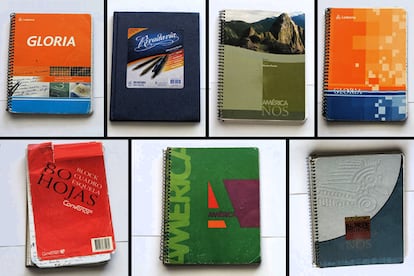
Illicit financing of politics
According to experts, the relevance of the trial goes beyond the alleged corruption that existed during the Kirchnerist governments. “What is at stake is that for the first time what we all knew behind the scenes is being discussed publicly,” emphasizes Pedro Biscay, founder of the Center for Research and Prevention of Economic Crime (CIPCE). “There is an underlying phenomenon which is an institutionalized system of illicit financing of politics,” continues Biscay.
This lawyer specializing in corruption cites as paradigmatic the exclusion from the trial of the executives of Techint, Argentina’s largest economic group. Nine trips to the metallurgical headquarters appear recorded in Centeno’s notebooks. Nonetheless, the initial charges were dropped by the investigating judge when he found that they had handed over money “for humanitarian reasons” to evacuate the employees of Sidor, the company’s recently nationalized branch in Venezuela. “That a judge dares to say this explains that a corruption pact exists in Argentina,” he says.
In theory, Biscaglia underlines, this process offers the possibility that “not only will some corrupt people end up in prison, but also that this criminal market will weaken.” In practice, however, it is more difficult for him due to the complexity of a mega-trial with almost 90 defendants.
Martín Astarita, principal researcher at the Center for Studies on Corruption, Integrity and Transparency Flacso, also underlines the importance of putting a magnifying glass on the role of entrepreneurs, who in previous cases often remained in the background. “Corruption must be considered as a very harmful relationship that exists between the public and private sectors,” says Astarita. In his opinion, in recent years there has been a growing takeover of the private sector over the public sector, which has gone almost unnoticed by Justice.
The oral hearing will mainly take place with virtual hearings, broadcast via videoconference. It is expected that more than 600 witnesses will appear and a duration that could reach three years.
